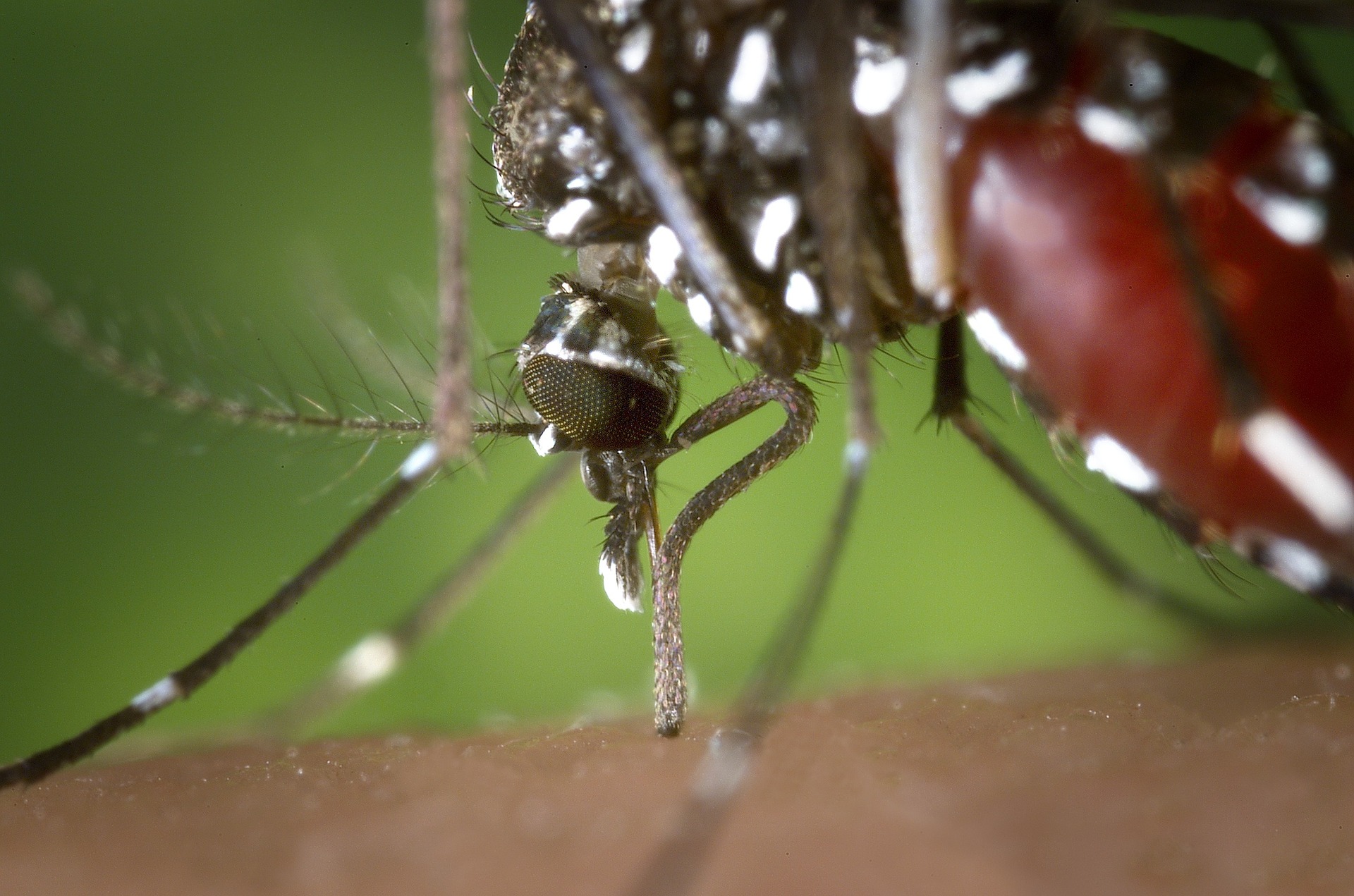Depending on the area of the world where your home is, you have probably been bitten by a mosquito at least once until now. It is of common knowledge that these tiny flying insects like drawing both human and animal blood, but is blood what they substantially feed on? Well, not exactly, and this is actually a more common misconception than we like to believe it is.
In fact, the only times that adult mosquitoes decide to bite us is when they are expecting to lay their eggs. Therefore, this bloody activity is reserved for females only. They require such proteins (as well as iron) in order to create the ideal nutritional values for their eggs being able to hatch, but blood is not a nutritional source for adults. So, what do baby and adult mosquitoes actually like to eat? Let’s find out together!
What do Mosquitoes Eat?
As most flying insect species, mosquitoes feed on nectar from flowers. Moreover, they can be considered as pollinators. This may come as a surprise to many, as most people probably only notice these little pests while buzzing around their head, but rarely when pollinating flowers. But male and female mosquitoes actually do need sugar in order to survive and stay healthy.
There are thousands of different species around our world nowadays, and each of them has their own preferences towards plants which will act as their main source of food, mostly depending on the area where they are located. Some enjoy feeding on vibrantly colored flowers, others look for tasty fruits, while third ones can simply adapt to rotting sources of sugar.
Male and female mosquitoes are designed by nature in such way to feature long and thin proboscis, which basically act as an extension of their mouth. When they locate their sugary meal, they simply penetrate it into the fruit or flower and they start extracting nectar from it. Such nectar is later stored into a somewhat of a sack which is connected to their fore-gut. Next, the mid-gut will secrete the required enzymes so that they can transform the nectar into liquids, which will then be absorbed by their gut. The gut of a mosquito is basically divided into two parts: one for the nectar and another for blood.
When an adult female mosquito is getting ready to lay her eggs, her diet requires some drastic modifications to be made. Her body cannot drain enough energy and nutritive values from sugar anymore, but she needs to add some bloody proteins as well as some iron to her specifically designed gut.
Females have quite different proboscis when compared to their male companions, as these are appositely designed in order to penetrate human or animal skin in no time. Plus, she is able of releasing such saliva which actually helps her to perform such feeding as a professional.
When a female mosquito bites you at home, she immediately releases her saliva for mainly two reasons. First of all, this will numb your skin and offer her more time to draw blood without being noticed. Secondly, this also helps her to make the blood become thinner, and to consequentially absorb it quicker. And such saliva is exactly what tends to transmit various viruses and diseases from human to human, not the blood.
Once female mosquitoes have laid their eggs and these are successfully hatched, they will probably keep looking for new victims as long as the weather conditions allow for them to reproduce. Once that wintertime starts approaching, some species may switch to nectar again, while gaining some extra fat reserves to survive the winter. Females only, because their male companions usually do not manage to survive another season.
What do Male Mosquitoes Eat?
Mosquitoe males consumes exactly the same types of meals as their non-fertile female friends do. Therefore, this includes nectar from flowers and honeydew from fruits. The exact plant preferences depend mostly on the climate type as well as on particular species.
However, what all male mosquitoes (male and female) do have in common is not feeding on blood. No male mosquito can lay eggs so they do not require blood protein or iron to survive. Whenever you see a mosquito buzzing around your head at home or anywhere else, you may be sure that it is a female specimen.
What do Mosquito Larvae Eat?
Mosquito larvae spend their life stage entirely into stagnant waters. From forgotten flowerpots to fishless garden ponds, these little creatures can adapt perfectly to any area of our home. And while there, they mostly feed on microorganisms. They have specific structures around their mouth which allow them to filter the water where they live in, and this ultimately makes them absorb different kinds of tiny algae or bacteria.
Some mosquito species are much larger when compared to others, and so are their larvae. In such cases, they can even feed on smaller insects or other larvae before heading to their pupal stage.
What does Baby Mosquito Eat?
When a larvae enters its next life stage and becomes a pupa, it actually does not eat. At all. Instead, it survives on the previously acquired nutrients during the pupae stage, and the only thing they consume during these 4 days is air.
They constantly dive in and out of the water, collecting air and moving as the sun moves. Once they are fully developed inside their cocoon, they will hatch into an adult mosquito which is already able to fly away and look for its first nectar source.
Wrapping Up
Now that you know that only female mosquitoes feed on human blood, do you feel any better? Neither do we. There are thousands of different species of mosquitoes around the world and they manage to reproduce such promptly that we basically cannot avoid getting bitten every now and then. Even by females only. These little insects are actually able of producing anywhere from 50 to several hundreds of eggs during their first brood, so the math is pretty simple here.
However, there are greatly helpful methods of keeping these tiny bloodsuckers away from our homes and families, and most of them are actually extremely simple to perform.




